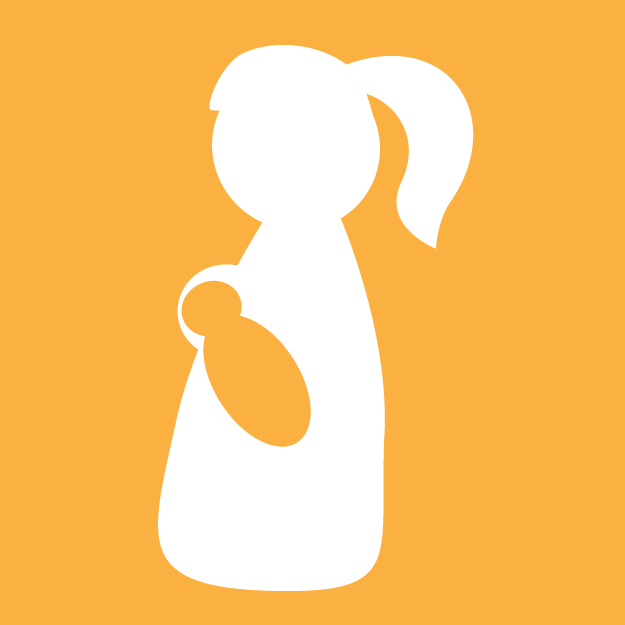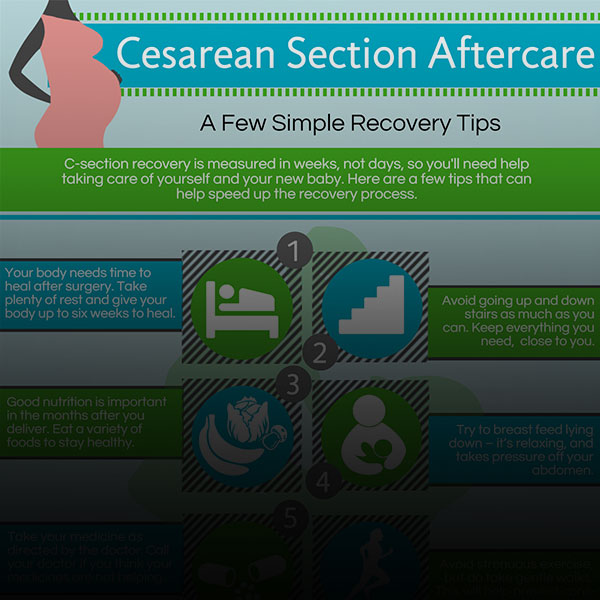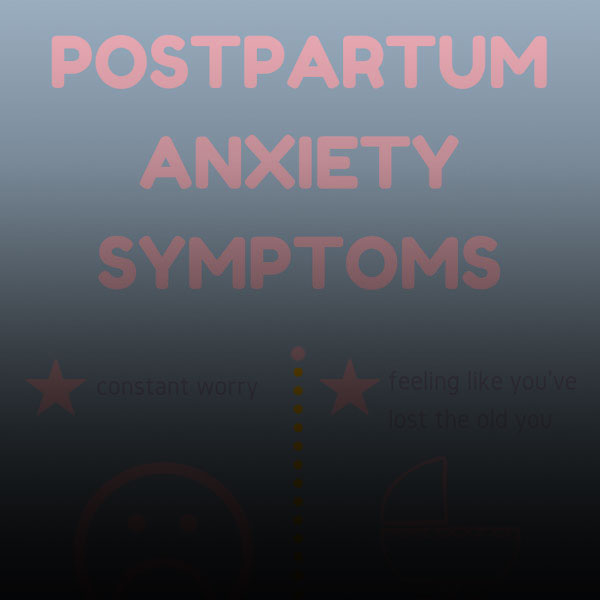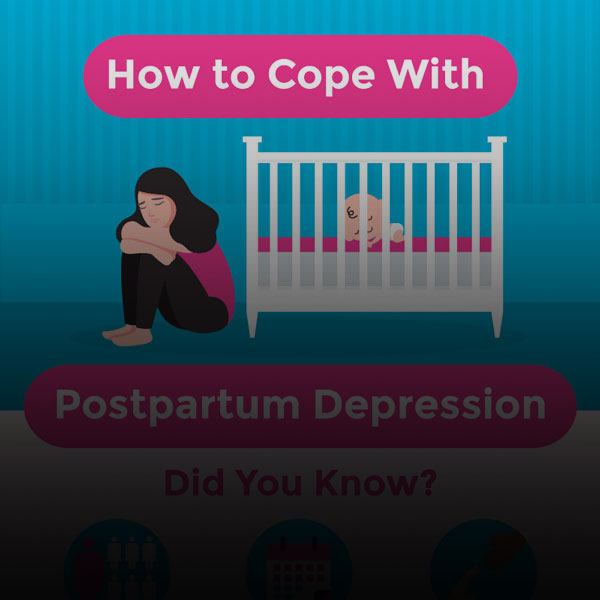4th Trimester

The early postpartum time (fourth trimester), is an amazing and sometimes brutal period. You and your baby are BOTH going through so much, and it can help to know what is normal and what is NOT. Many mothers deal with postpartum depression and anxiety at this time - you are NOT alone. Nearly a third of all mothers go through PPA/PPD.
PLEASE reach out for help. We have resources available online and have a list of local providers you can visit with to deal with a wide variety of pregnancy, birth prep, and postpartum needs.
Articles & Resources
Taking Care of Yourself in the 4th Trimester
After having your baby, you expect that your days and nights will be filled with caring for and loving on your little one. But, you may not have expected the need to take care of yourself.
It’s important to prepare for the first 12 weeks postpartum and learn how to take care of yourself while looking after your baby.
Pediatrician and author of “The Happiest Baby on the Block,” Dr. Harvey Karp is credited for popularizing the concept of the fourth trimester.
The fourth trimester consists of the first 12 weeks postpartum, which completes the childbearing year. It is a transitional period in which both mother and baby are adjusting to each other and the new world around them.
The Emotional & Physical Toll
As a new parent, your emotions will fluctuate constantly. You may feel:
- Emotionally and mentally drained
- Defeated
- Frustrated/confused
- Excited/happy
- Nervous or anxious
On top of the rollercoaster of emotions, you are likely battling some physical changes such as:
- Physical exhaustion and sleep deprivation
- Postpartum pain
- Healing from your birth experience
- Breastfeeding challenges
- Fluctuating hormones
Many mothers also experience postpartum depression and/or postpartum anxiety.
You were pampered while pregnant and all of the attention was on you. But now that the baby is here, it may seem that all the focus is on your baby. When in reality, there are two people who need caring for. Putting your own needs on the backburner to take care of your baby may seem like the right thing to do, but when you’re running on empty, you have very little to give your baby.
In her book Mothering the New Mother, Sally Placksin lists the needs of new mothers, based on extensive interviews with real parents who shared about the struggles associated with early parenting and postpartum recovery. These include:
- Rest so your body can heal
- Unbiased education and encouragement in parenting skills
- Healthy food and drinks for your body
- Delegation of household tasks to allow you bonding and self-reflection time
- Wisdom about what is going on with your body and spirit
- Authentic representations and timelines regarding the scope of emotions other women have experienced after childbirth
- Opportunities to debrief about your birthing experience and how you feel about it
- Emotional and physical care for your body and mind
New moms tend to feel pressure to:
- Return to pre-pregnancy fitness
- Return to work quickly
- Complete every parenting task without error
It is normal to feel this way as a new mother, but remember that right now, the most important thing is keeping both your baby and yourself as healthy and happy as possible.
Just as you may have written a birth plan for your childbirth experience, it's a good idea to prepare a postpartum plan as well. Remember:
- Do not be afraid to ask for help
- Contact friends and family ahead of time and schedule assistance for your needs
- Consider hiring professional help such as a postpartum doula that will help you transition into parenthood with practical, physical, and emotional support
While the 4th trimester will be frustrating, draining, and come with many learning curves, it is so incredibly rewarding, so try your best to enjoy it. Remember to listen to your body, and don’t feel guilty prioritizing your own needs. The healthier and happier you are, the better equipped you will be to take care of your baby.
Seek professional help if you are feeling helpless, hopeless, or unable to take care of yourself and your baby. Postpartum Support International (PSI) offers a phone crisis line (800-944-4773) and text support (503-894-9453), as well as referrals to local providers.
4th Trimester for Dads
If you feel overwhelmed and completely out of your element, don't worry - it's normal.
In the early postpartum period, it's common for dad to feel a little left out, because there's so much attention on the baby. This will pass with time, and there's some important things to keep in mind:
- You have not been forgotten.
- You are not alone.
- Mothers often deal with this, too.
- Seek out other new parents, and share your experiences.
- Fathers also deal with postpartum depression. If you are feeling overly moody or are having trouble dealing with this time, PLEASE SEEK HELP.
Mom has a lot to do between recovery and feeding baby, but your support in this time will make a WORLD of difference for her.
- Help keep mom grounded, well rested (I mean, within reason), and well nourished. Pro tip - keep a basket of snacks handy, and an extra water bottle filled at all times for when mom is trapped feeding the baby but is suddenly ravenous or desperate for a drink!
- Be encouraging/supportive. She'll be dealing with big emotions at this time. Let her know you're there for her, and that she's doing a great job.
- You’re the buffer between mom/baby and the outside world. Sure, Aunt Sally would love to see the baby. But is she going to be helpful to have around? Or will it add unneeded stress? Send pictures, accept help, but prioritize your own time with mom and baby. The rest of the family (and friends!) can wait if you both want or need them to.
You may feel like a superhero at times, and your kid will definitely think you are - but you need to take care of yourself, too.
- Help at night when you can, but also make sure to get as much rest as possible. That video game will still be there to play later, once you come out of the newborn fog. So will that movie. Turn the screen off and go to sleep!
- DRINK YOUR WATER!!!
- Eat your veggies! You're in survival mode, so if pizza and stale cheetos are what has to happen for supper, at least you ate something! But when possible, make sure to eat as healthily as possible. Your body will thank you for it.
- Ask for help when YOU need it, too! If you are stressed out, CALL SOMEONE. You don't have to be SuperDad all the time.
- Fathers deal with postpartum depression, too - so ask for help if you are struggling!
Babies in the 4th Trimester
The 4th trimester is the term used to describe the transition from womb to world when a baby depends on you for love, comfort, feeding, and sleep more than any other time. The fourth trimester starts at birth and lasts until three months old.
During this time, your baby adapts to the variety of noises, lights, smells, sounds, and sensations of the outside world as compared to the womb. You can make this transition easier for both you and your baby by offering your baby plenty of love and support in their first three months.
Lots of feeding
- Whether breastfeeding, expressing milk, or formula feeding - you’ll likely be offering to feed a MINIMUM of 8 to 12 times per day. Breastfed babies should be fed on demand, even if it seems that “they just ate and shouldn’t be hungry.” Do NOT limit a breastfed baby because it’s been “too soon.” They know when they are hungry, and feeding on demand will help secure your milk supply
- A newborn will initially consume about an ounce per feeding, often graduating to 2 to 3 ounces by 2 weeks of age and 4 to 6 ounces by 3 months.
- Babies experience sudden growth spurts, so they sometimes may require more frequent feedings and/or additional ounces.
- A newborn is too young for a feeding routine and should be fed on demand.
- Feeding time is a great opportunity to bond with your baby through cuddling, eye contact, or skin-to-skin.
- You’ll soon begin to understand your baby’s hunger cues - early signs include sucking on fingers, turning their head, and opening their mouth.
- If your baby is steadily gaining weight and consistently wetting diapers, they’re getting what they need.
Lots of sleeping
- Sleeping helps babies' brains process the loads of sensory stimulation they're receiving constantly.
- On average, a new baby will sleep for 14-17 hours in a 24-hour span with frequent wakings.
- Around 6 to 8 weeks, babies begin to sleep less during the day and more in the evening.
- Your baby still does not have a concept of day or night, so settling into a sleep routine will take a while. So for now, let them sleep as often as they need.
- Your baby will begin to sleep in longer stretches as you come near the end of the fourth trimester.
Lots of crying
- A newborn cries as a means of communication, and is likely to cry more during the 4th trimester than any other time in their life. It can be difficult listening to a baby cry, but periods of fussing are completely normal.
- Crying usually peaks around 6 weeks of age & eases off by the three-month mark.
- Soothing your baby each time they cry will not spoil them - in fact, it will help them feel more secure, so they may even cry less.
Development of Senses
- A baby’s senses continue to improve throughout their fourth trimester.
- Look for signs that your baby is alert and willing to look at things, but also signs they're becoming overwhelmed, such as turning away or breaking eye contact.
- Your baby will recognize and be comforted by your familiar scent and voice.
Physical Development
- Giving your baby daily tummy time can help them to develop physically. Tummy time helps to encourage a baby's movement and build strength, so you can start relatively soon after their birth.
Skin-to-Skin Contact
- Being in contact with your warm, natural skin helps to stabilize your baby’s body temperature, heart rate, and stress hormones.
- Regular skin-to-skin can help to stimulate baby’s sense of touch, soothe fussiness and crying, and improve latch-on for breastfeeding.
- It stimulates the release of oxytocin – the love & bonding hormone – in both you and baby.
- Topless cuddles, shared baths, baby massage, and bed-sharing are all great skin-to-skin experiences for you and your baby.
Feeding on Demand
- Giving your baby nourishment whenever they need it, whether breastfeeding or bottle-feeding, helps to meet their energy needs & reassures them that they're well looked after.
- Feeding is always better if it is baby-led, not a routine.
- Remember that your baby may not always be hungry for a full feed and instead may want a quick drink or simply some comfort sucking.
Swaddling
Safe swaddling creates a feeling of containment, just like your womb. It may help your baby to sleep better and soothe them if they've been crying. Be sure to:
- Never swaddle over your baby’s head or near the face
- Never swaddle your baby when they are ill or have a fever
- Make sure your baby does not overheat and only swaddle with a breathable/thin fabric
- Only swaddle your baby until they can roll over
- Always place your baby to sleep on their back
- Do not swaddle tightly across your baby’s chest, hips, or legs - legs should be free to “froggy up” into a typical newborn position. Start to swaddle as soon as possible - do not swaddle a 3-month-old if they have not been swaddled before.
Swinging & Movement
- The womb was a constantly moving space for your baby, so dancing, swaying side to side, going for a quick walk, or even a bumpy car ride may be more soothing to them than being held sitting down.
Sucking
- Sucking is a reflex and an innately reassuring action, so pacifiers can help a baby self-soothe.
- If you are breastfeeding, wait a few weeks before introducing a pacifier to avoid potential nipple confusion.
Babywearing
- Babywearing (carrying your baby in a sling or baby carrier) can mimic the gentle movement your baby felt in the womb and help comfort them.
- Babywearing can be a great way to bond, and also means 2 free hands for mom or dad.
- It is common for a baby to cry once placed in a sling, which usually just means that you need to move around.
Positioning
- You can soothe a newborn by holding them on their side or by placing them over your shoulder and gently putting pressure on their tummy.
Noise
- Babies love sound. A white noise machine or recording can be played on loop while your baby sleeps.
- Sometimes “shushing” works too, mimicking the sound of blood rushing that your baby experienced in utero.
Some newborns also respond well to:
- A warm bath
- A gentle massage
- Going outside into fresh, open air
Now that your baby is born, it is important to ensure you are traveling with them safely. Be sure to check out this Ultimate Guide to Car Seat Safety.
When trying to soothe your baby, keep in mind the calm womb environment they came from, to the overwhelming outside world they now are adapting to.
Remember that during the 4th trimester, your baby’s neural pathways and nervous system continue to develop, so their sponge-like minds need all of the stimulation they can get. But, they are also overstimulated easily, so watch for their cues to find out what they like and need at different times. Every baby is different!
Postpartum Depression
Postpartum depression (PPD) is defined as the depression that may occur for a new mother following giving birth. It is very common and arises due to a combination of hormonal changes, fatigue, and the psychological adjustments experienced at the onset of motherhood.
Both PPD and the “baby blues” are triggered by the physical and hormonal changes which occur immediately following birth. The lack of sleep and the worry about your baby are normal feelings post-birth, but should not become extreme.
Postpartum depression symptoms are more intense and longer-lasting than that of the baby blues, which should only last a few weeks.
- Extended periods of feeling sad or overwhelmed
- Crying often
- Too little sleep or too much sleep
- Extreme fluctuations in your diet - no appetite or binge eating
- A decreased interest in activities you would usually enjoy
- Intense feelings of guilt or worthlessness
- Overwhelming anxiety about the baby’s well being
- Lack of energy to complete simple tasks
- Neglecting your hygiene
- Restlessness or sluggishness
- Difficulty concentrating
- Feeling ambivalent or having repeated negative feelings about your baby
- Having thoughts about harming yourself or your baby (in extreme cases)
Exact symptoms will differ from person to person, and it is unlikely you will have all of the above symptoms. If you are feeling despondent, anxious, or that you can’t get out of bed and care for your baby, speak with your doctor.
Let your doctor or mental health professional know right away if you’re having such feelings, for untreated depression can hinder your ability to care for your baby.
There are no laboratory tests for diagnosis, instead your doctor will discuss with you about your feelings and symptoms. Though questions may feel personal, be honest so you can get the help you need.
Healthcare professionals can provide treatment that will make you feel better plus help you take better care of your newborn and develop a stronger bond with them.
Everyone recovers at different rates, but symptoms may last several months up to 2 years. If you’re prescribed medication, you will likely be advised to continue it for at least 6 months.
With the proper care and support, you should see improvement month by month.
- Increase your Omega-3 intake
- Exercise regularly, even if it’s just walking
- Address breastfeeding difficulties (read more here)
- Rest when you can
- Have patience with yourself
- Get social interaction
- Get outside for fresh air
- Create time for yourself/self-care
- Set small goals to focus on
- Talk about your feelings and your symptoms with your doctor, spouse, close friend, or in a support group
Postpartum depression is not something you have to tackle all by yourself. Take note of your risk factors, monitor your symptoms, and reach out for support from your doctor, spouse, family, and close friends.
If you are worried or feel alone, there are plenty of resources where you can receive support, including the Postpartum Support International. Call their toll-free number to speak with someone immediately (800) 944-4773 or text them at (503) 894-9453.
Male Postpartum Depression
Paternal postpartum depression (PPND) is increasingly common, and is depression that your partner may experience after your give birth to your baby.
- Hormonal fluctuations - Testosterone levels drop; estrogen, prolactin, and cortisol go up. Some men also experience nausea and weight gain.
- Sleep deprivation - Caused by hormone fluctuations paired with the neurochemical changes that occur in the brain.
- Other causes include a history of the disease, relationship instability, financial problems or stress, a sick or premature baby, and having a wife who is also depressed.
Postpartum depression is different from the Daddy Blues, which is similar to normal stress. In this case, a male will likely feel better with extra sleep, working out, or socializing. This is not the case with depression, where symptoms are more severe and last longer.
Here are some common male postpartum depression symptoms:
- Sadness, irritability, agitation, and/or anger
- Feelings of worthlessness
- Distancing from your partner and baby
- Loss of interest in activities that you used to enjoy
- Loss of interest in sex
- Engagement in risky behaviors (abusing alcohol or drugs, gambling, extramarital affairs)
- Shortness of breath
- Heart palpitations
- Suicidal thoughts or thoughts of self-harm
Symptoms of PPND can last for weeks or even months if left untreated. It’s important to seek help from a medical professional ASAP if you suspect you are suffering from depression.
- Talk therapy with a licensed mental health professional
- Medication (antidepressants)
- Support groups and sites like Postpartummen.com
Keep searching until you find the treatment that's right for you, and remember that seeking help or speaking up is not a sign of weakness, but can save your life.
Postpartum Anxiety
Postpartum Anxiety falls under the general medical term “Perinatal Mental Health” - which refers to the mental health of a woman during pregnancy and birth, as well as postpartum.
Postpartum Anxiety is anxiety suffered by a mother following childbirth, and is very common in the first 12 months. Though it is very natural to worry about your newborn, it becomes a concern if the worry starts to overtake your life and make you feel in a constant state of anxiety.
- Constant worry and/or fear about your baby’s health and your ability as a parent
- Panic attacks
- Loss of appetite
- Feeling like something bad is going to happen to you or the baby
- Tiredness
- Racing thoughts
- Forgetfulness
- Irritability
- Difficulty concentrating
- Nausea
- Headaches
- Aches and pains
- Feelings of dread
- Feeling like you’ve lost the ‘old’ you
- Constantly checking if the baby is breathing & worrying about them to an extreme
If you feel any of the above, it’s important to talk to your health provider. It’s normal for a new mom to feel anxious and emotional after birth, but this should not become extreme or last more than a few weeks.
There are many possible treatments for Postpartum Anxiety. No one method is right for everyone. Consider your options, and choose what’s best for you.
- Talking Therapy - when you see a licensed mental health professional who will talk you through your feelings and help you work through your anxiety.
- Your provider may recommend Cognitive Behavioural Therapy, which helps you identify your negative thoughts and find a way to change your negative thinking to positive. This type of therapy can be done one-on-one or in a group.
- Antidepressants - Your doctor may recommend antidepressant medications if you are suffering from moderate to severe postpartum anxiety.
- Self-Help
In addition to professional help, there are a variety of things you can do at home to help
- Eat a balanced, healthy diet
- Exercise regularly
- Take a break from childcare duties and have some “you” time
- Try controlled breathing during anxious moments
- Make time to rest and get a good night’s sleep
- Go outside for fresh air
- Talk with family and friends about your feelings and ways they can help/support you
- Try journaling or writing down your feelings
- Join a mom group for support
Your first point of contact should be your healthcare provider, who may recommend medication in addition to offering alternative methods of recovery.
To read more about Perinatal Mental Health Disorders or recieve help, these charities can offer advice and support:



